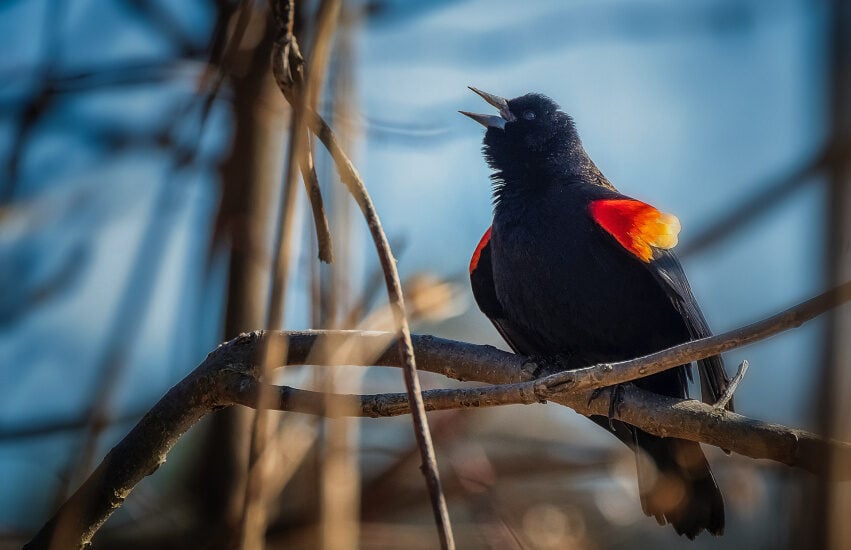
You won’t be able to go birdwatching anymore… At least, that was one of the spurious claims that the Concerned Private Landowners Coalition publicized last month. The “coalition” (a smokescreen started by Forests Nova Scotia) stoked fears that the Biodiversity Act would prevent recreational pursuits, including snowshoeing, hiking, and birdwatching. Birdwatching? Yes, you read that right.
Well, bird-lovers should be concerned, but not for the reasons that Forests Nova Scotia has suggested. It’s biodiversity loss that’s the real threat – to both birds and those that love them.
There are 2.5 billion fewer migratory birds in North America today than there were in 1970. Even once-common species, like the evening grosbeak, are declining at unprecedented rates.
We are enabling this crisis: one nest at a time.
The Department of Lands and Forestry tells us that there are 62 migratory species that spend time in Nova Scotia. What the Department doesn’t advertise is that forestry operations during peak nesting season have a severe and lasting impact on both native and migratory bird populations.
In theory, the Migratory Birds Convention Act should protect these birds, their nests, and their eggs from intentional or inadvertent harm. But Nova Scotia refuses to implement a “silent season.”
In our woods, forestry activities continue unabated, resulting in “incidental take.” That’s a clinical term for all of the nests, eggs, birds, and fledgelings that are destroyed by forestry operations during nesting season.
A 2013 study estimated that forestry operations in our province destroy up to 160,000 nests each year.
It’s illegal. And it’s our collective responsibility to do better. It’s past time for Premier Rankin to implement a silent season.
These species are worthy of protection for their own sake. But imagine: what would spring be like without the return of the endangered Canada warbler? Without American robins searching for worms to take back to the nest? Without the sweet songs of the hermit thrush?
Birds are widely recognized as indicators of overall ecosystem health. What does our disregard for their well being say about us as stewards of the environment? Maybe it’s a warning that we should stop walking on eggshells when it comes to the forestry industry.
Lindsay Lee
See also: Gretchen Fitzgerald: Cut, cut, cut – On clearcutting and the Migratory Birds Convention Act
Check out our new community calendar!
With a special thanks to our generous donors who make publication of the Nova Scotia Advocate possible.
Subscribe to the Nova Scotia Advocate weekly digest and never miss an article again. It’s free!




What a succinct, truthful letter. Why DON’T we stop destroying birds’ nests and habitat? The Migratory Birds Convention Act is one of the few tools that has teeth, yet it is seldom invoked. Irvings tried to overturn it a few years ago and lost. They paid a bunch of money in fines for cutting down heron nests with herons in them…and paid the group Bird Studies Canada (now Birds Canada) too. Why? My guess is to get them to look the other way when they destroy birds and their habitat. “Incidental take” it’s called. Why else does a major habitat destroyer give to conservation groups? To buy a veneer of respectability they know they don’t deserve.
Thank you, Margo. I’m glad the letter resonated with you.